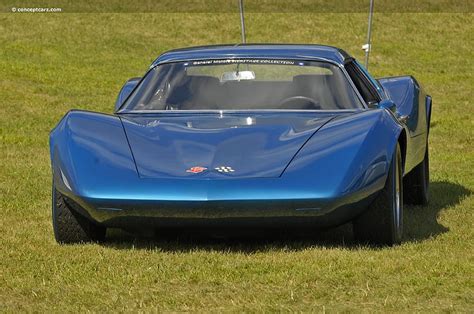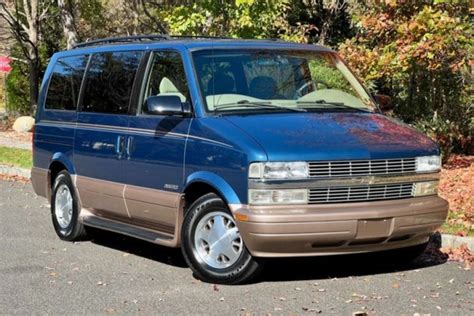Chevrolet Astr0 problems

The Chevrolet Astro is a van that was manufactured and marketed by the Chevrolet division of American auto manufacturer General Motors from 1985 to 2005. Sold alongside the GMC Safari, the Astro was marketed in multiple configurations, including passenger minivan and cargo van.
The Astro and Safari used a rear-wheel drive chassis; all-wheel drive became an option in 1990. For its entire production, the Astro and Safari were produced by Baltimore Assembly in Baltimore, Maryland; the vans would be the final model line produced by the facility. In total, approximately 3.2 million Astros and Safaris were produced from 1985 through 2005.
Background
The Astro and Safari were introduced for the 1985 model year as the first minivan from General Motors. While marketed as a response to the first-generation Chrysler minivans, GM selected a rear-wheel drive layout, sizing the Astro and Safari closely to the short-wheelbase Chevrolet G10 van. Similar to the Ford Aerostar, to reduce production costs, GM adapted light-truck powertrain components; engines and transmissions were sourced from the Chevrolet S-10, allowing for a towing capacity of up to 5,500 lb (2,500 kg).
Prior to its use on a minivan, the Astro nameplate was used twice by General Motors; in 1967 (for the Chevrolet Astro 1 concept car) and from 1969 until 1987 (on the GMC Astro COE semitractor). GMC sourced the Safari nameplate from Pontiac (used by the latter to denote station wagons). As GMC was half of the Pontiac/GMC Division (later including Buick), from 1985 through 1989, both GMC and Pontiac Safaris were simultaneously offered through the same dealership network.

Social links
Chevrolet Astr0 model years

Common Chevrolet Astr0 problems
The Chevrolet Astro, produced from 1985 to 2005, has been known for several common problems that owners have reported. These issues are often related to intake leaks, condenser cracks, fuel systems, lighting, seats, visibility, brakes, suspension, steering, exterior, and equipment.
Intake leaks and condenser cracks are common problems in the Chevrolet Astro, as well as other GM vehicles. These issues can be addressed by checking for Technical Service Bulletins (TSBs) and extended warranties. GM has been known to pick and choose which customers receive assistance, so it might be a matter of luck to get help with these problems.
Fuel system issues are another common problem in the Astro. There have been multiple recalls related to fuel systems, including recalls for fuel leaks, fuel system components, and fuel tank issues. These problems can lead to fuel leaks, which can potentially cause fires or other safety hazards. It is important to address any fuel system issues promptly to ensure the safety of the vehicle.
Lighting issues are also prevalent in the Astro. Recalls have been issued for lighting problems, including issues with headlights, tail lights, and other lighting components. These problems can affect the vehicle's visibility, both for the driver and for other drivers on the road. Proper lighting is essential for safe driving, so it is important to address any lighting issues promptly.
Seat problems are another common issue in the Astro. Recalls have been issued for seat issues, including problems with seat belts, seat backs, and seat tracks. These problems can affect the safety and comfort of the vehicle, so it is important to address any seat issues promptly.
Visibility issues are also a concern in the Astro. Recalls have been issued for visibility problems, including issues with windshield wipers, mirrors, and other visibility components. These problems can affect the driver's ability to see the road and other vehicles, which can potentially lead to accidents. It is important to address any visibility issues promptly to ensure the safety of the vehicle.
Brakes, suspension, and steering issues have also been reported in the Astro. Recalls have been issued for these problems, including issues with brake lines, suspension components, and steering components. These problems can affect the safety and handling of the vehicle, so it is important to address any brake, suspension, or steering issues promptly.
Exterior and equipment issues have also been reported in the Astro. Recalls have been issued for these problems, including issues with exterior components, such as body panels and trim, and equipment components, such as audio systems and climate control systems. These problems can affect the appearance and functionality of the vehicle, so it is important to address any exterior or equipment issues promptly.
In summary, the Chevrolet Astro has been known for several common problems, including intake leaks, condenser cracks, fuel system issues, lighting problems, seat issues, visibility problems, brake, suspension, and steering issues, and exterior and equipment problems. It is important to address any of these issues promptly to ensure the safety and functionality of the vehicle.

Why was the Chevy Astro discontinued?
The Astro was discontinued in 2005 because General Motors thought that they were not selling as well as they used to. The Astro was replaced by the Chevrolet Uplander, Chevrolet Traverse and the Chevrolet City Express.
How long do Chevy Astros last?
about 200,000 miles
The transmissions are good for about 200,000 miles if not overworked. They become rattle traps and start to disintegrate around the engine at about 350,000 miles although I have seen some with over 400,000 miles on them.
Are Astro Vans hard to work on?
Are Astro vans easy to work on? The Chevy Astro van is considered to be very easy to work on. These have the Chevrolet 4.3L V6 engine that is known to be very simple to service if any issues come up.
Is the 1994 Astro van reliable?
Very reliable, more of a truck feel, than a car
The Chevy Astro (1994), is a workhorse. It can be used to move or tow big loads. It has a lot of power. It does not handle well in snow, you need sandbags in the bag for winter.
Are you having problems with your Chevrolet Astr0?


